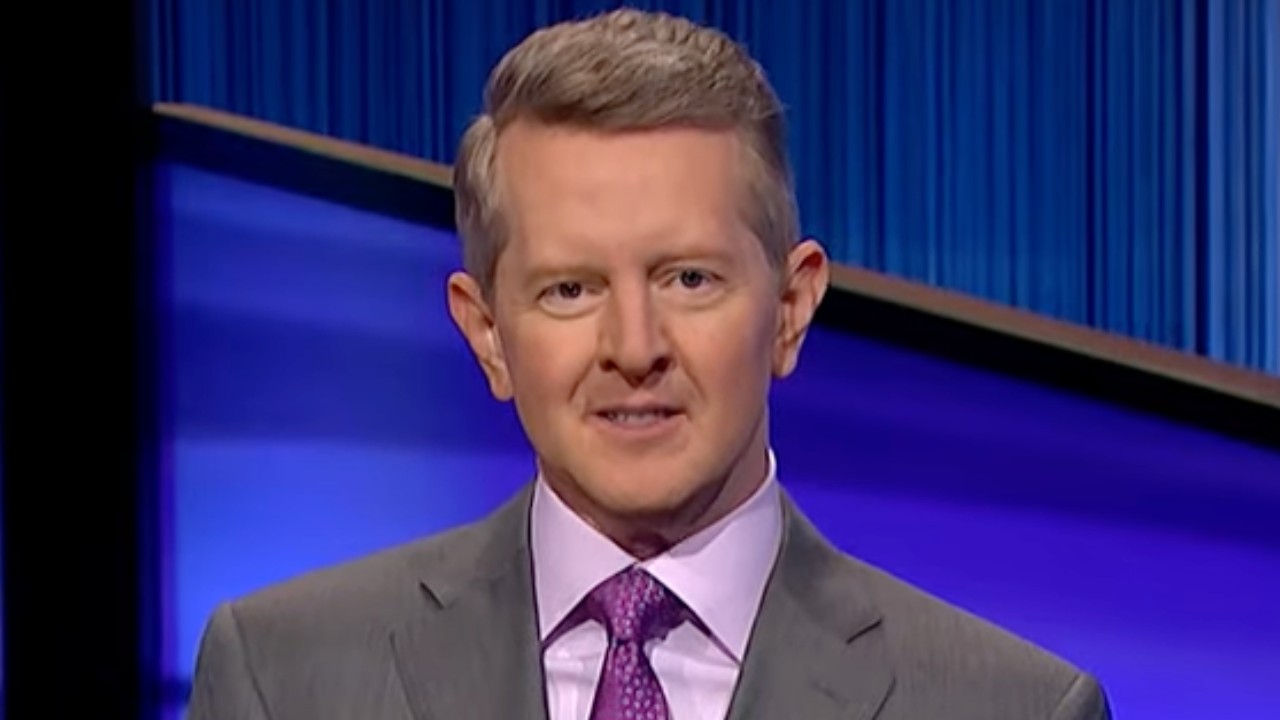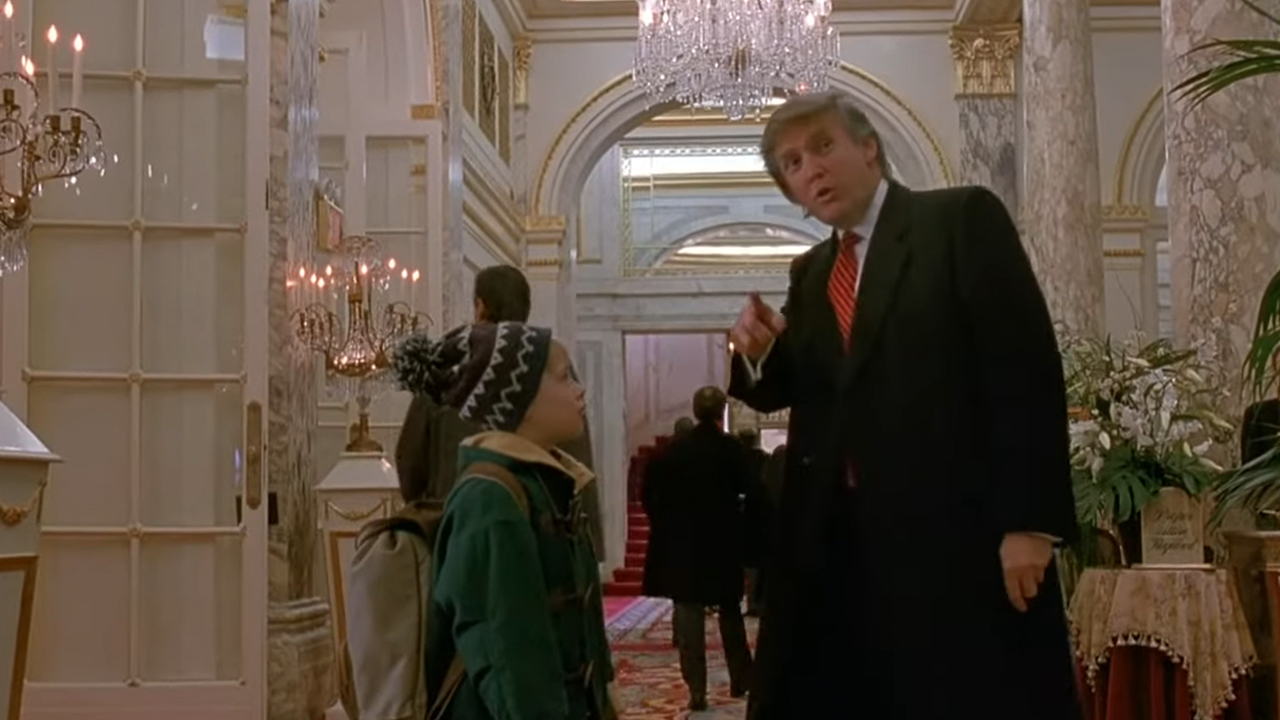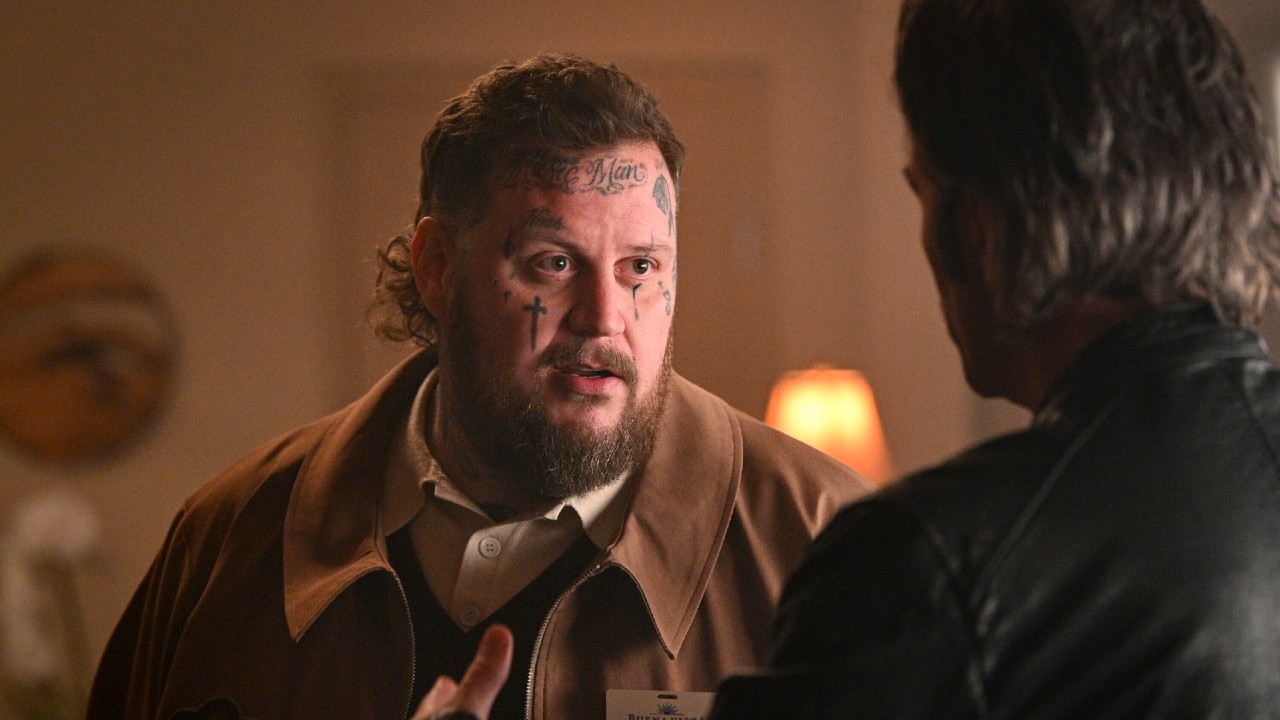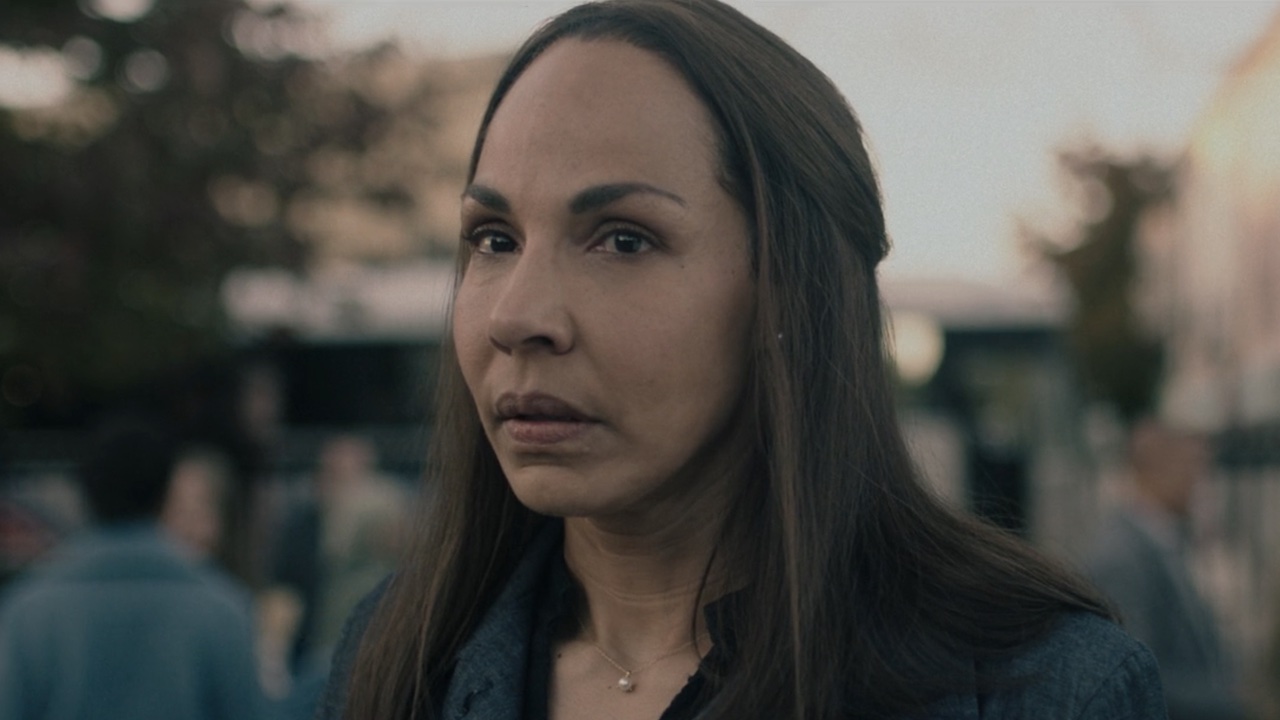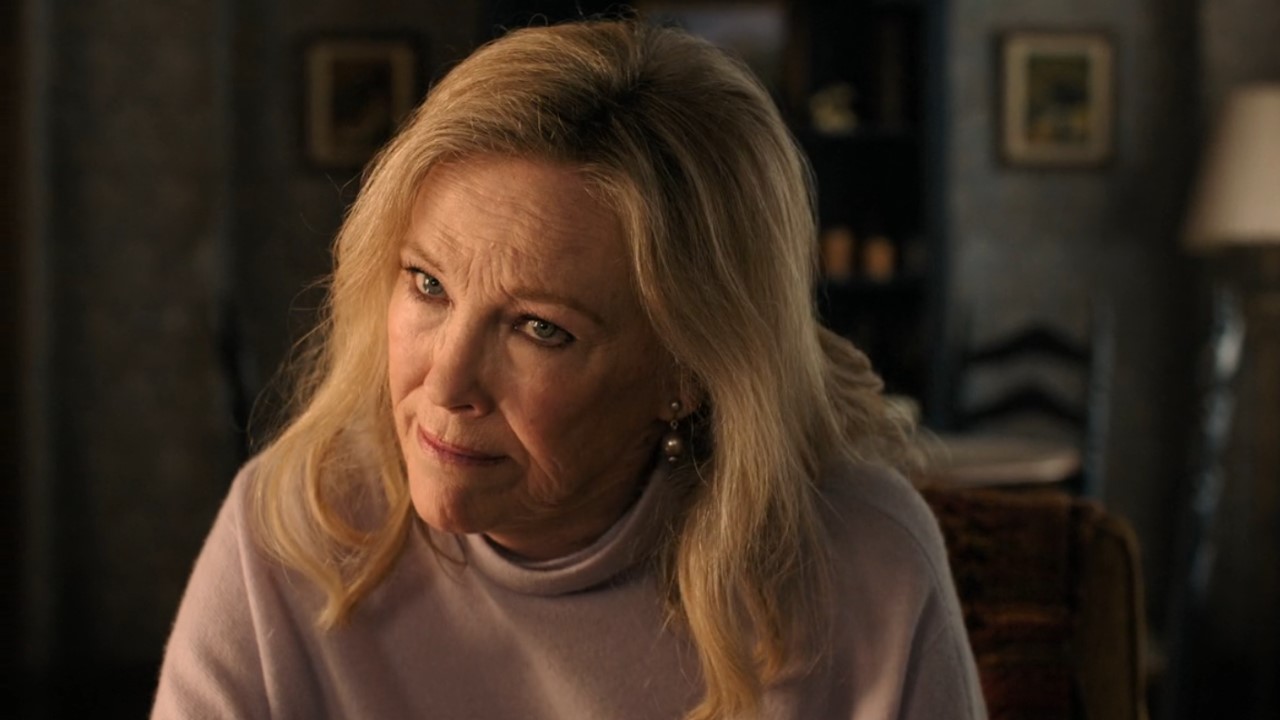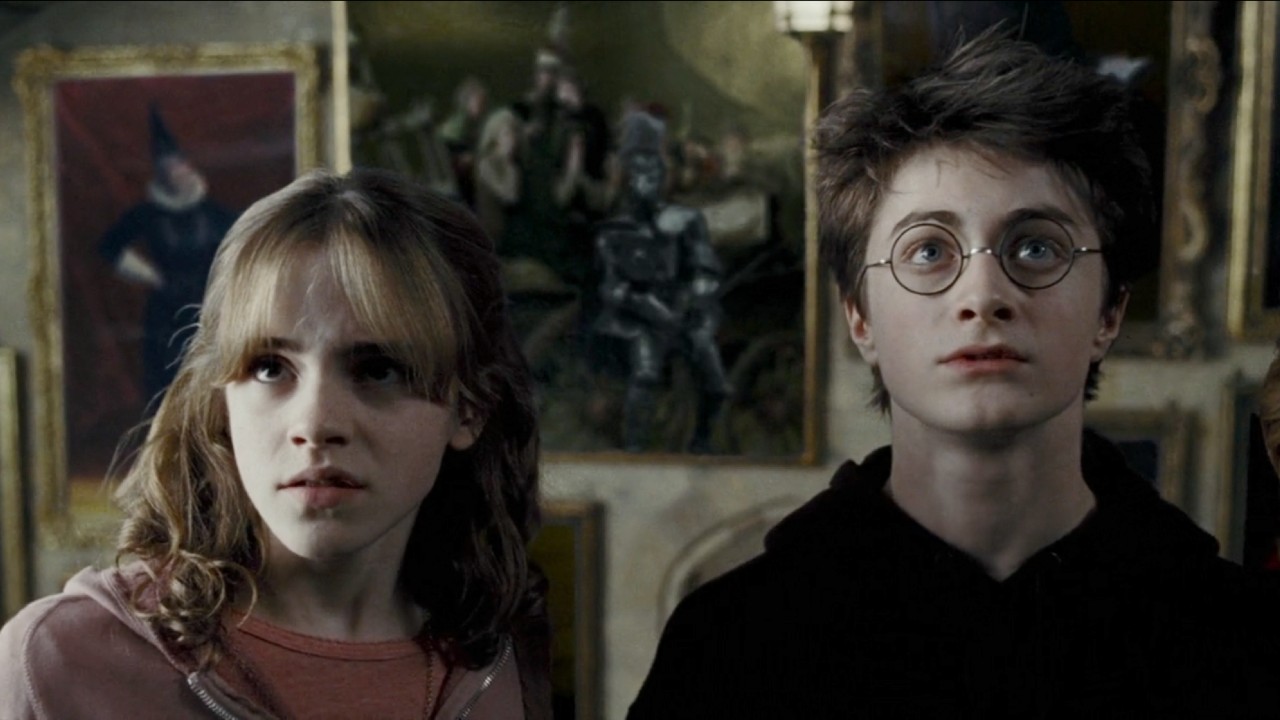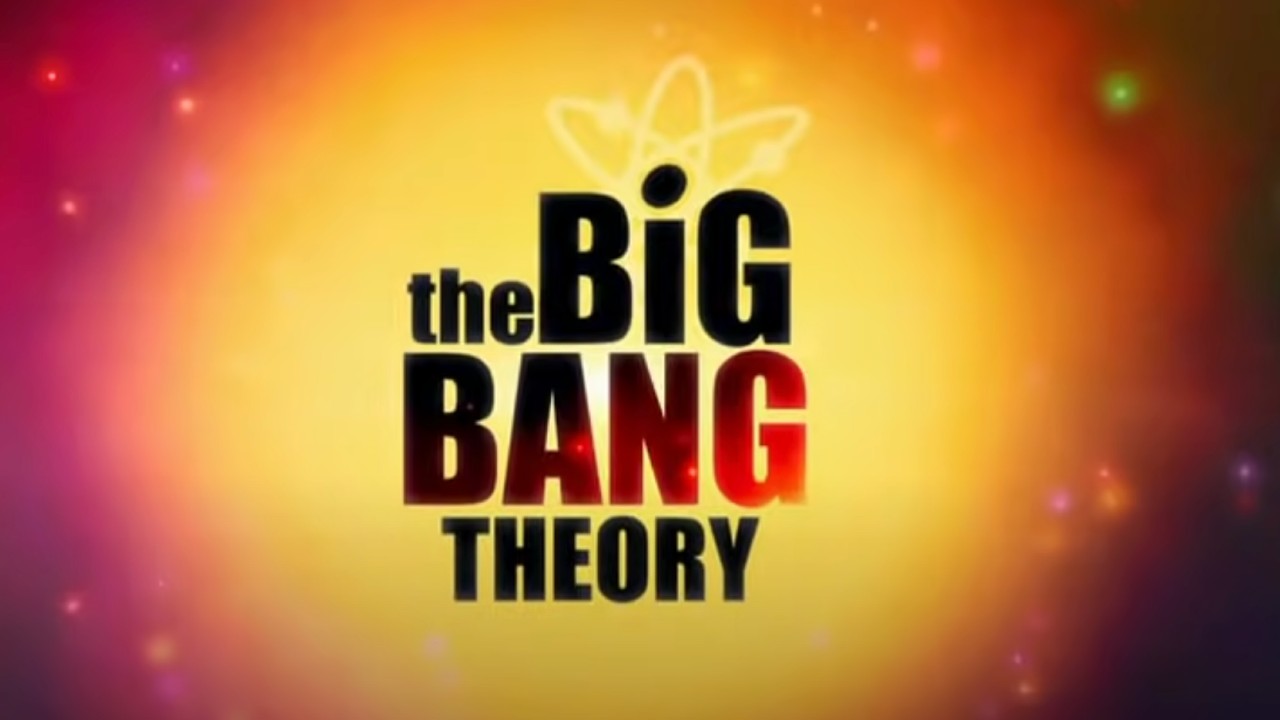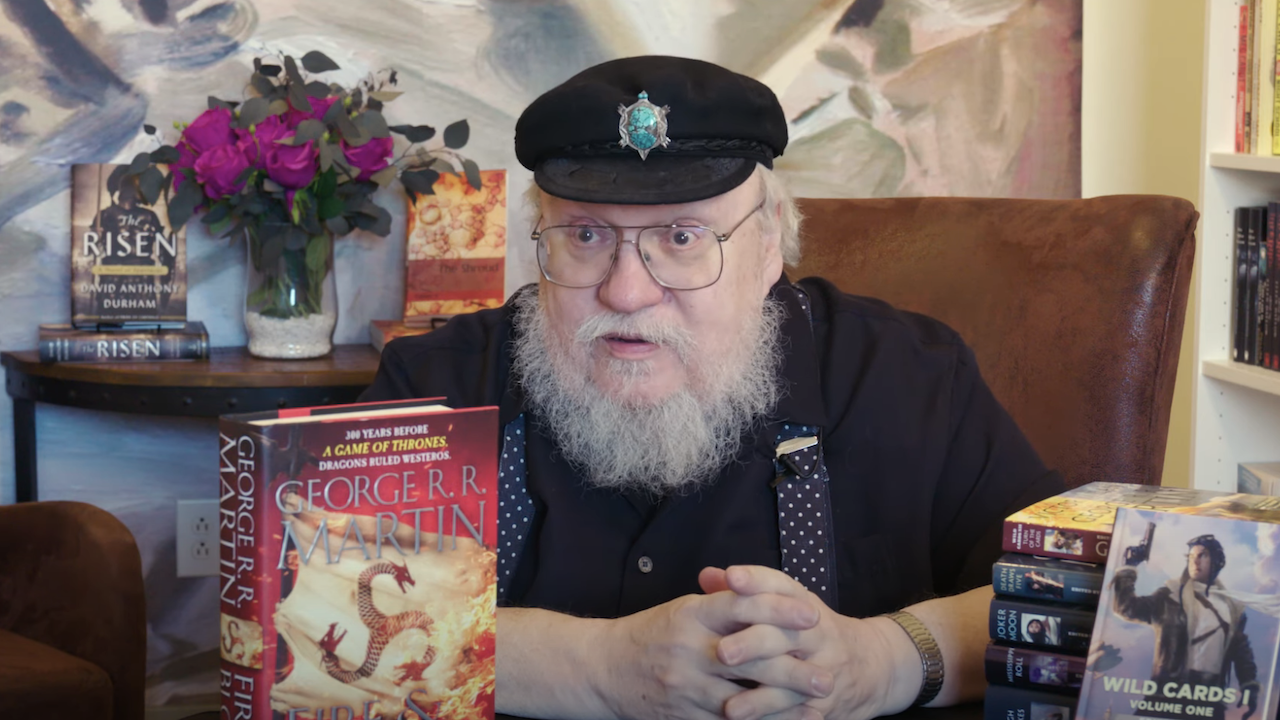Why Accusing Cloud Atlas Of Racism Is Missing The Point

Today the Media Action Network for Asian Americans stepped into what's been a slow-boiling debate ever since July, when the first trailer for Cloud Atlas debuted online. Even in that jam-packed six-minute trailer it was hard to miss the sight of Jim Sturgess, a white British actor, with his eyes augmented to look Asian, in a section of the story that takes place in the futuristic Neo Seoul and which co-stars Korean actress Doona Bae. It was a jarring image, and many websites raised a flag of concern that, in overreaching to tell a wide-ranging story about multiple races and centuries, directors Andy and Lana Wachowksi and Tom Tykwer had stepped into some of the most pernicious and racist tendencies that date back to Hollywood's inception.
The term that's been thrown around is yellowface, in which a white actor's face is changed to appear Asian as opposed to casting an Asian actor in the role. The more familiar blackface has its origins in minstrel shows and has been absent in film for decades, while yellowface appears in films as beloved and recent as Breakfast at Tiffany's or David Carradine's kung fu movies-- it's nasty stuff, either way, and in the last few decades this kind of mockery of East Asian people has, thankfully, become as taboo as blackface.
And it's not that kind of parody that anybody is accusing Cloud Atlas of, which makes the yellowface term a little inaccurate-- Jim Sturgess's character, along with the other characters played by white actors in the Neo Seoul scenes, is not intended to mock Koreans. What the Media Action Network for Asian Americans is pointing out is a fair point: why not cast an Asian or Asian American actor for that role? As the group's founding president Guy Aoki points out in The Hollywood Reporter, "It would have been a great, stereotype-busting role for an Asian American actor to play, as Asian American men aren’t allowed to be dynamic or heroic very often."
I can't argue with that, nor can I explain why the Wachowskis and Tykwer didn't cast an Asian actor in a major role, except that by making an independent film on a huge budget, they possibly had to go with the actors with the biggest names possible, most of whom are white, American and English. (That's a depressing reality of filmmaking far bigger than Cloud Atlas that we can't really get into here) But to pick on Sturgess's transformation specifically, as well as the alteration of other actors (Hugo Weaving, James D'Arcy, Keith David) to appear more Asian, is to miss the purpose of Cloud Atlas, a movie devoted to the idea that these lines between races, genders and generations are as immaterial as, well, clouds.
As you probably know, Cloud Atlas tells six individual stories that take place across centuries, with around a dozen actors playing multiple leading roles-- Tom Hanks is a doctor on a Pacific trading ship in the 1840s and a nuclear scientist in 1970s San Francisco, Jim Broadbent is that ship's racist captain as well as a book publisher in 2012 London, etc. Each of the actors transforms dramatically between the stories, and though the makeup varies in quality, it's a striking effect-- you know you're seeing Hugo Weaving as the evil nurse or as the actual devil, but the knowledge of his presence as an actor helps connect his story to the others before it. It's a way of linking these stories unrelated through plot, and of establishing the movie's overarching message that, regardless of gender or class or race or country, souls remain the same across time.
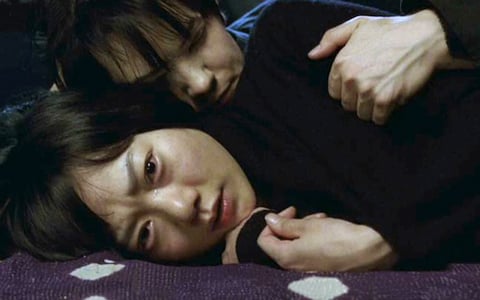
Jim Sturgess, in particular, has two important roles-- as Adam Ewing, an American businessman traveling on that South Pacific ship, and then as Hae-Joo Im, the Korean character that's gotten him in hot water. The two characters are consistently linked thematically, in that Adam Ewing is helping a former slave (David Gyasi) earn his freedom, and Hae-Joo is helping Sonmi-451-- a clone built for slavery-- earn hers as well. James D'Arcy performs a similar function, as the recipient of letters from one story's main character (a composer in the 1930s), and then as the interviewer to whom Sonmi-451 tells her story; he is, throughout time, the passive documenter of the lives of others, a touching character who also drives home the film's themes about the importance of storytelling.
The key to it all, I think, is Keith David, who appears briefly in the Neo Seoul scenes as the leader of the pro-abolition resistance group. David, who is African-American, has no alteration to his face beyond the eyes; there's no attempt to make his skin look less black, or to even pretend he is Asian. His presence, brief as it is, allows you to look differently at the white actors in these scenes-- their skin color has not been changed either, and the "slanty" eyes they've been given look nothing like the real Korean and Chinese actors in these scenes. Given that the Neo Seoul story takes place far into the future, with all kinds of perceived rules of culture and science changed, it seems safe to assume that races, as we know them, have begun to merge and lose meaning. In the book Cloud Atlas, Sonmi-451 even learns of the past and notes that "curiously," humans used to define social strata by "the quantity of melanin in one's skin."
CINEMABLEND NEWSLETTER
Your Daily Blend of Entertainment News
We still live among those social strata, of course, and actors with more melanin in their skin than Jim Sturgess continually struggle to be represented onscreen, especially in large studio releases like Cloud Atlas. I also recognize that I am white, and have the white privilege of seeing my own race represented in virtually every film-- I empathize with the frustrations of moviegoers of color who don't see themselves onscreen, but I admit, I can't fully relate to it. The Wachowskis and Tykwer share that white privilege, and have furthered it by directing films that, by and large, starred white actors.
But whereas so many films have swapped the races of its characters to favor white actors without any justification, Cloud Atlas has a pretty good one, and though its earnest theme of transcending artificial boundaries between people may be naive, it's valuable too. We don't yet live in the race-blind society that Cloud Atlas imperfectly imagines. But by imagining it so boldly, and by asking many of its actors to transform themselves-- including Halle Berry into a white Jewish woman, and Doona Bae into a Mexican woman-- it makes a strong claim for us to get there. The white privilege of Hollywood has to end, but Cloud Atlas is a step toward the solution, not the problem.
Staff Writer at CinemaBlend

